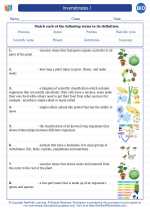Snails
Introduction
Snails are a group of slow-moving gastropod mollusks that have coiled shells. They can be found in various habitats including terrestrial, freshwater, and marine environments.
Anatomy of a Snail
A typical snail has a soft body, a muscular foot for locomotion, a head with tentacles, and a coiled shell. The shell provides protection and support for the snail's body.
Reproduction
Snails are hermaphroditic, meaning they have both male and female reproductive organs. They can reproduce sexually by exchanging sperm with another snail, or they can self-fertilize their eggs.
Ecological Importance
Snails play a crucial role in various ecosystems. They are important in nutrient cycling, and they serve as a food source for many animals, including birds and mammals.
Adaptations
Snails have developed unique adaptations to survive in different environments. For example, some terrestrial snails have a hinged operculum to seal the shell opening to prevent desiccation.
Common Species
Some common species of snails include the garden snail (Helix aspersa), the Roman snail (Helix pomatia), and the pond snail (Lymnaea stagnalis).
Study Tips
- Understand the anatomy of a snail, including the function of its shell and foot.
- Learn about the reproductive process in snails and the advantages of being hermaphroditic.
- Research the ecological importance of snails and their role in nutrient cycling.
- Explore the adaptations of snails to different habitats, such as terrestrial and aquatic environments.
- Identify and differentiate between common species of snails.
◂Biology Worksheets and Study Guides High School. Invertebrates
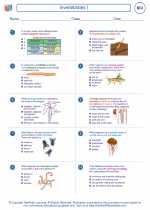
 Worksheet/Answer key
Worksheet/Answer key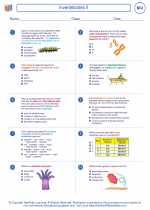
 Worksheet/Answer key
Worksheet/Answer key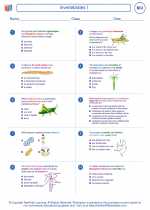
 Worksheet/Answer key
Worksheet/Answer key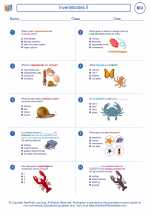
 Worksheet/Answer key
Worksheet/Answer key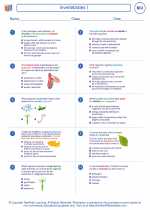
 Worksheet/Answer key
Worksheet/Answer key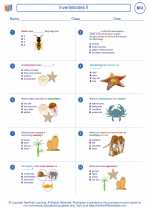
 Vocabulary/Answer key
Vocabulary/Answer key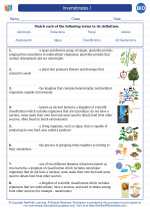
 Vocabulary/Answer key
Vocabulary/Answer key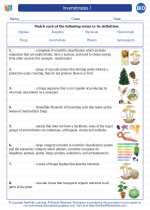
 Vocabulary/Answer key
Vocabulary/Answer key